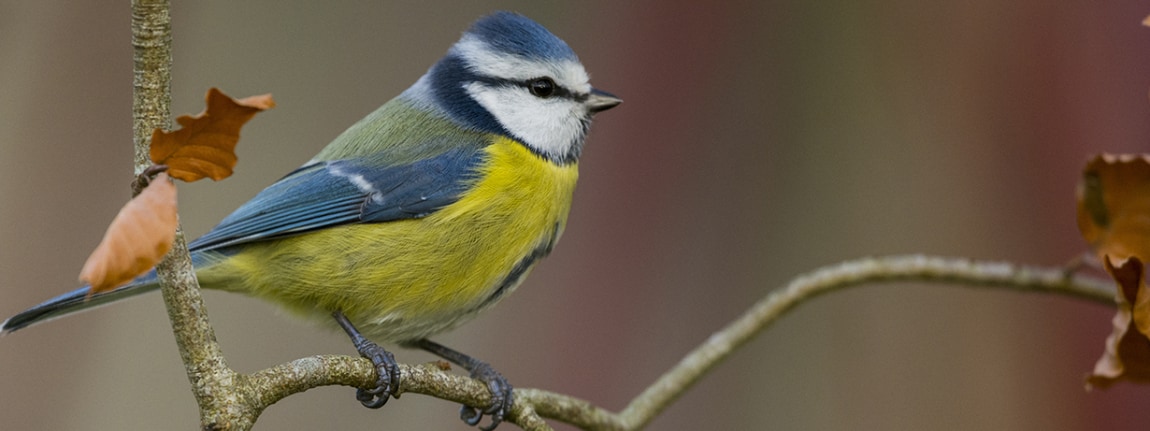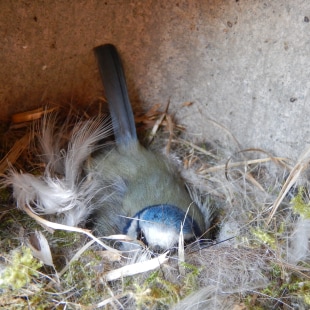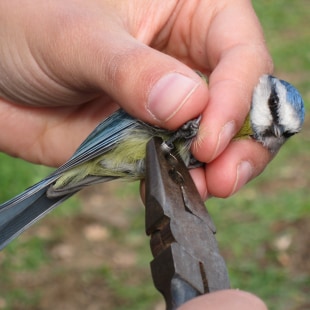The « MOMMY KNOWS BEST » project
Supported by the BNP Paribas Foundation through its Climate & Biodiversity Initiative, the “MOMMY KNOWS BEST” project particularly addresses the Sustainable Development Goals (SDG) 15 “Life on Land” and 13 “Climate Action”.
Led by Céline Teplitsky, researcher in Evolutionary Ecology at the French National Centre for Scientific Research (CNRS), the “MOMMY KNOWS BEST” project aims at assessing the extent to which complex changes in the environment can affect the ability of Blue and Great Tits to express an adaptive response to increased spring temperature.It will rely on long-term studies across Europe, in various habitats (forest versus cities, Mediterranean versus Northern Europe).
"Organisms are adapted to deal with variable environments… within a certain range. Whether their current adaptive mechanisms will still be adequate in the near future depends on the limits imposed by the pace of climate change and other environmental challenges"
Céline Teplitsky, Researcher in Evolutionary Ecology at CNRS
What are Nature’s tools to face environmental change?
In the face of rapid climate change, the ability of populations to cope with new environmental conditions is of paramount importance for their persistence.
Three mechanisms allow adapting to changing environmental conditions:
- Changes in distribution area reflecting a tracking of optimal environmental conditions
- Evolution of ecologically key traits – i.e. a change in the genetic composition of the population
- Phenotypic plasticity – which can be seen as flexibility: the ability of organisms to express traits differently depending on the environment in which they live
Varying breeding time: a textbook example of plasticity
A classic example of plasticity is earlier phenology of many organisms with warmer spring temperature.Phenology being periodic events in biological life cycles (mostly annual) influenced by seasonal variations in climate, such as breeding and flowering time.
For instance, in insectivorous birds, laying eggs earlier when spring is warmer allows synchronising chicks hatching and their food demands with the earlier emergence of caterpillars, their main food source. The ability of females to respond to early spring temperature is thus crucial for a successful breeding and the maintenance of populations.
Plasticity and climate change: Does MOMMY still KNOW BEST?
Such responses to temperature are currently playing a main role in adapting to climate change. However, whether these responses will remain adaptive in a context of global change is not granted. In particular, climate change also results in increased frequencies of extreme climatic events, increased prevalence of parasites or spread of diseases; the response to climate change could as well be influenced by other components of anthropogenic change such as habitat degradation.
Several important questions arise:
- Will early spring temperature remain a reliable source of information on when to reproduce?
- Will organisms still manage to respond adaptively to temperature when climatic variations get out of the range of what has been experienced in the past?
- What is the influence on the expression of plasticity of combined factors?For example, facing increased temperature in urban environments, where many stressors can coexist – i.e. poor food quality, noise and light pollution.
- What are the consequences of these potential limitations on populations’ risk of extinction?
Blue tits, great tits and researchers: a long (term) story
Breeding time in Blue tits (Cyanistes caeruleus) and Great tits (Parus major) has been investigated over decades in several populations across Europe; many of these have been monitored for at least 20 years and sometimes more than 40 years.
It gives the opportunity to build the project on an already extensive knowledge of their ecology and dynamics. This is why Tits are an ideal system to investigate the potential limits to plasticity and their potential consequences for population dynamics in general.
The ”MOMMY KNOWS BEST” project is highly collaborative and relies on two types of long-term monitoring of wild populations:
- Intensive monitoring of marked individuals during the breeding season in sites equipped with nest boxes, giving access to very detailed life histories
- Extensive monitoring from mist nets captures in a high number of sites, offering information across a larger range of climates and habitats.
From fundamental science to environmental concerns
The ”MOMMY KNOWS BEST” project will try to answer two fundamental questions: what is driving variation in plasticity across individuals and populations? what consequences does this variation have on how populations adapt to a rapidly changing environment?
Answering these questions will allow devising more accurate scenarios of responses to climate change. With global change impacts on biodiversity continuing to intensify at an alarming rate, understanding the limits of mitigation of global changes’ impacts by plastic responses is as necessary as communicating around these limits: the more awareness on the frailty of biodiversity, the more hope we have of collective efforts to preserve it. In that respect, communication will be a key aspect for the research team: it will rely on prevailing media such as YouTube – to popularize their research results and reach the widest audience possible, including young generations.
The ability to understand and predict adaptive responses of wild populations to their environment depends on the aptitude to picture an integrative view of these responses.Evaluating how plasticity can contribute to population persistence in the long run is a challenge for fundamental research and will improve scenarios for responses to climate change. Such scenarios are helpful for anticipating conservation actions and they allow fully appreciating the extent of the challenges imposed by global change on biodiversity – an important step to get society to engage in preserving said biodiversity.
MOMMY KNOWS BEST: The challenge to breed at the right time
In a context of global change, what is the impact of new environmental conditions on the ability of birds to cope with rapid climate change, a key to their persistence?
"This innovative program sends us back to Lamarck and Darwin as it will highlight how climate change can affect how organisms adapt to their environment and how they evolve. Massive participative science should ensure dissemination and efficient delivery".
BNP Paribas Foundation's scientific committee



